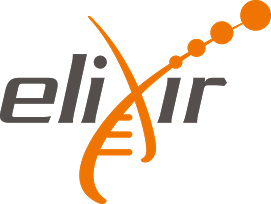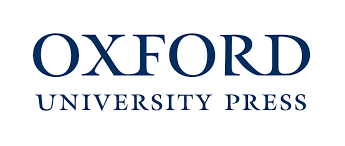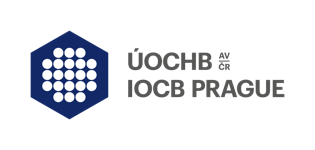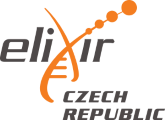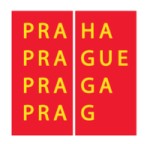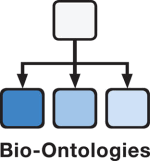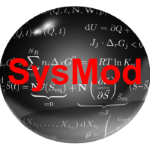BD2K Special Track
Organizer(s):
Ishwar Chandramouliswaran, NIH NIAID, United States
Susan Gregurick, NIH NIGMS, United States
Harry Caufield, University of California Los Angeles, United States
Jiawei Han, University of Illinois at Urbana-Champaign, United States
Peipei Ping, University of California Los Angeles, United States
Wei Wang, University of California Los Angeles, United States
Presentation Overview:
Big Data to Knowledge (BD2K) is a trans-NIH initiative established to enable biomedical research as a digital research enterprise, to facilitate discovery and support new knowledge, and to maximize community engagement. Since its inception in October 2014, the BD2K program has been involved in the production of more than 546 publications and 148 software platforms, with impact in the fields of annotation, data management, metadata standards, data integration, personalized real-world monitoring, predictive models, causal analytics, and precision medicine. BD2K Centers continue to forge new advances in the specific applications of tools to propel our understanding of disease and biological pathways.
The overall focus of this track parallels the BD2K program’s objectives: to facilitate broad use of biomedical digital assets by making them Findable, Accessible, Interoperable, and Reusable (FAIR), to conduct research and develop the methods, software, and tools needed to analyze biomedical Big Data, to enhance training in the development and use of methods and tools necessary for biomedical Big Data, and to support a data ecosystem that accelerates discovery as part of a digital enterprise. Two sessions of talks will focus on addressing these objectives in the fields of machine learning and in metadata and indexing. A third session will then address topics and emerging technologies in data science, open science, and their relationship to the NIH Commons. The track will conclude with a panel session to assist discussions about ongoing questions in biomedical research and data science.
| Time | Event | Speakers |
|---|---|---|
| 10:00 - 11:00 | Keynote | Chair: Ishwar Chandramouliswaran |
| 10:00 - 10:30 | Introduction and Overview of BD2K | Susan Gregurick (NIH NIGMS) |
| 10:30 - 11:00 | Keynote Talk:“Data Commons in the age of Precision Medicine” | Warren Kibbe (NIH NCI) |
| 11:00 - 12:30 | Session 1: Machine Learning | Chairs: Jiawei Han and Harry Caufield |
| 11:00 - 11:15 | Machine Learning speaker 1 “Learning to Uncover Host-Virus Interactions” | Mark Craven (U Wisconsin - Madison) |
| 11:15 - 11:30 | Machine Learning speaker 2 “Genome-guided Framework for Personalized Cancer Treatment” | Krishna Kalari (Mayo Clinic) |
| 11:30 - 11:45 | Machine Learning speaker 3 “Construction of Biological Networks from Massive Text Data: A Data-Driven Approach” | Jiawei Han(UIUC) |
| 11:45 - 12:00 | Machine Learning speaker 4 “Decoding genome structure” | Jian Ma(Carnegie Mellon U) |
| 12:00 - 12:15 | Machine Learning speaker 5 “Aztec: A machine learning empowered platform for FAIR biomedical software” | Wei Wang(UCLA) |
| 12:15 - 12:30 | Machine Learning speaker 6 “KnowEnG: Knowledge Network-guided analysis of genomics data on the Cloud” | Saurabh Sinha(UIUC) |
| 12:30 - 2:00 | Scheduled break (Lunch & ISMB poster session) | |
| 2:00 - 4:00 | Session 2: Metadata and Indexing | Chair: Mark Musen |
| 2:00 - 2:20 | Metadata and Indexing speaker 1 “CEDAR: Technology for using metadata standards to ease sharing, integration, and reuse of biomedical data” | Mark Musen (Stanford) |
| 2:20 - 2:40 | Metadata and Indexing speaker 2 “OmicsDI - Discovery and Connectivity Analysis of Omics Datasets” | Henning Hermjakob (EMBL-EBI) |
| 2:40 - 3:00 | Metadata and Indexing speaker 3 “Going FAIR: where are we?” | Susanna-Assunta Sansone (Oxford) |
| 3:00 - 3:20 | Metadata and Indexing speaker 4 "To be FAIR, we should give Ontologies and Data Visualization a try.” | Nils Gehlenborg (Harvard) |
| 3:20 - 3:40 | Metadata and Indexing speaker 5 “Open Neuroimaging Laboratory and BrainBox” | Roberto Toro (Institut Pasteur) |
| 3:40 - 4:00 | Metadata and Indexing speaker 6 "Inferring and explaining gene-disease associations through implicit knowledge" | Kristina Hettne (Leiden University Medical Ctr) |
| 4:00 - 4:30 | Scheduled break | |
| 4:30 - 6:00 | Session 3: Data Science, Open Science, and the Commons | Chair: Peipei Ping |
| 4:30 - 4:45 | Data Science/Open Science speaker 1 “Opportunities for Data Intensive Research in Infectious Diseases” | Maria Giovanni (NIH NIAID) |
| 4:45 - 5:00 | Data Science/Open Science speaker 2 “The NCI Cancer Research Data Commons” | Anthony Kerlavage(NIH NCI) |
| 5:00 - 5:15 | Data Science/Open Science speaker 3 | Aurora Blucher (OHSU) |
| 5:15 - 5:30 | Session 2: Data Science/Open Science speaker 4 “Accelerating Research on the Cloud” | Angel Pizarro (Amazon Web Services) |
| 5:30 - 6:00 | Panel Discussion | |





